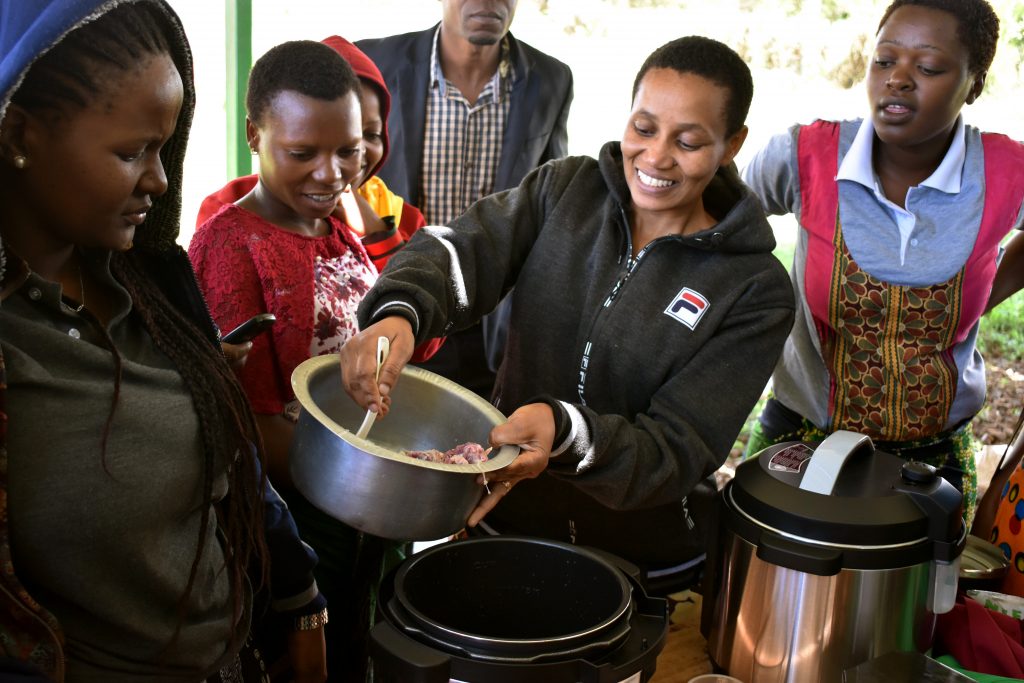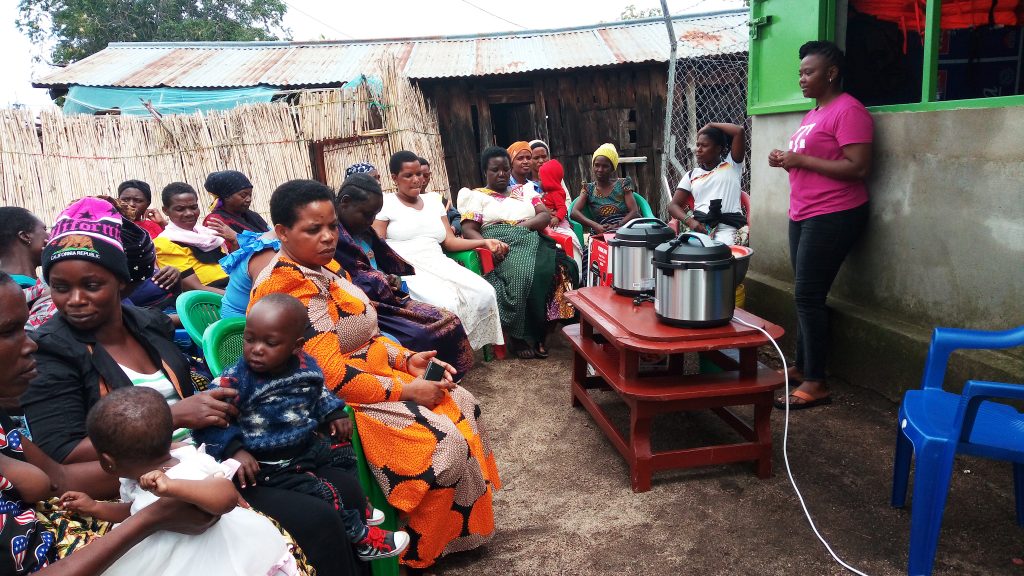- Date
- 10th March 2021
- Categories
- General
By Jon Leary (Loughborough University/Gamos Ltd.), Elliot Avila (A2EI), Lisa Schwarz (A2EI) and Anna Clements (Gamos Ltd.).
The A2EI (Access to Energy Institute) and the MECS (Modern Energy Cooking Services) programme are proud to announce a strategic collaboration to record data on the real usage of electric cooking devices in emerging markets.

Together, A2EI and MECS will deploy data logging devices onto electric cooking appliances in areas where the use of polluting fuels such as charcoal, firewood and kerosene is currently commonplace. Through remote monitoring, A2EI and MECS will gather data that reveals how real users are utilizing electric cooking appliances and generate insights on the opportunities and barriers to scaling electric cooking appliances globally.

This collaboration builds on ongoing collaboration between A2EI and MECS. In 2020, the organizations conducted a joint pilot project to monitor electric pressure cooker usage in 100 households connected to solar mini-grids in Tanzania. That research revealed insights around how electric cooking appliances might scale in off-grid contexts and how pricing influences cooking behavior. Find out more details on that research in the A2EI’s clean cooking data release report and the accompanying webinar.


About A2EI
The Access to Energy Institute (A2EI) is the first not-for-profit and collaborative research and development platform in the solar off-grid industry. It provides broad, reliable open-source data, as well as on-the-ground research and analysis of solar solutions. Additionally, A2EI develops and procures solar system and appliance prototypes and initiates pilot projects – aiming to provide widely scalable sustainable energy access research and solutions as a common good.
A2EI’s research on clean cooking has focused on understanding user behavior and using data to create evidence-based cases for the adoption of electric cooking appliances.
For more information about A2EI, visit their website.
Do you have an eCooking pilot project that would benefit from better data? If so, please contact A2EI via cleancooking@a2ei.org, or read more about what we can offer here.
About MECS
MECS is a £40m UK-Aid funded research and innovation programme designed to find innovative solutions that can enable the 3 billion people who still cook primarily with biomass to transition directly to cooking with modern energy. MECS seeks to change the narrative in the clean cooking and electrification sectors, that for decades, the world has seen as two separate problems. Enormous progress has been made with respect to electrification in recent years, with fewer than 1 billion now without access, however clean cooking has lagged behind. Meanwhile, a suite of transformative new technologies and business models has been developed to enable electric cooking in off-grid and weak-grid environments. The increasing viability of electric cooking solutions has given rise to a strategic opportunity to tackle both problems together by integrating planning and action on both these global energy access challenges with energy-efficient electric cooking.
The MECS programme is currently supporting an array of electric cooking pilots, including:
- Cooking diary studies carried out by MECS Country Partners to understand the cooking culture in each MECS Priority Country and the compatibility of different energy-efficient eCooking appliances.
- Electric Cooking Outreach (ECO) Challenge Fund Projects, which aim to trial specific energy-efficient eCooking appliances and develop locally appropriate business models that can bring them to market at scale.
- Larger-scale pilots tied into Results Based Financing programmes as a mechanism to facilitate the development of supply chains for energy-efficient eCooking appliances.